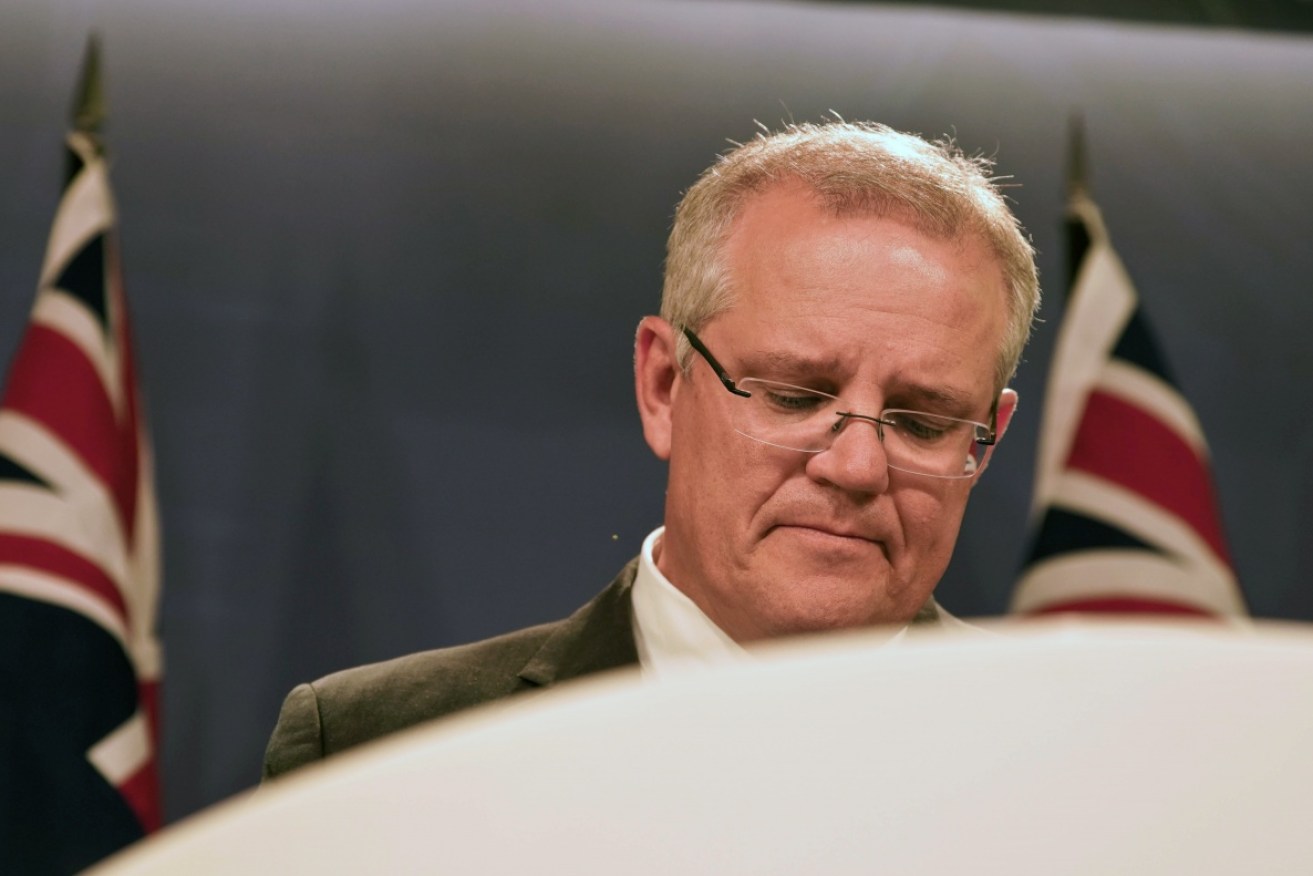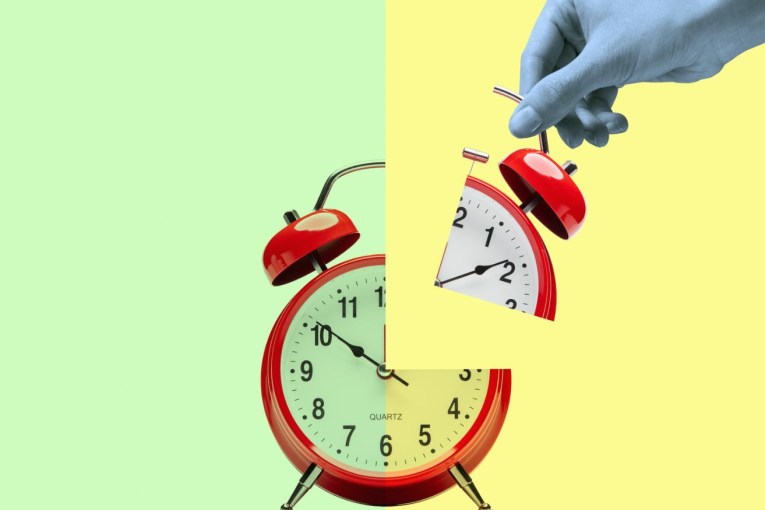Scott Morrison’s sneaky Photoshopping can’t change economic reality


It's been a bad week of numbers for Prime Minister Scott Morrison. Photo: AAP
If Scott Morrison’s department is going to be underhanded you would think they would do something useful like airbrushing out this week’s largely dismal collection of economic figures, rather than doctoring a picture of the Prime Minister’s sneakers.
Mr Morrison’s Photoshopped family gathering showing him with two gleaming white left-footed trainers brought some light relief to a week that included the manufacturing sector contracting for the first time in 26 months, building approvals tumble and a further slowdown in job advertising growth.
And just when the economy seemingly needs a bit of a pick me up, the Bank of Queensland announced it was independently increasing interest rates on some loans, sparking fears other banks will follow suit.
It’s a decision that couldn’t have come at a worse time with confidence among consumers already starting the year on a sour note.
Financial markets are now pricing in a near-50 per cent chance the Reserve Bank will need to cut the cash rate this year to offset the impact of higher home loan rates while providing a lift to the economy.
Previously only a small group of economists were toying with the idea of a rate cut when the general view was that the next move would be up, albeit some way off.
The cash rate has stood at 1.5 per cent since August 2016.
AMP Capital’s chief economist Shane Oliver has been in the rate cut camp for a while.
“Our assessment remains that the next move in official interest rates will be a rate cut, thanks to sub-par (economic) growth, the negative impact of falling house prices, weak wages growth and sub-target inflation,” Mr Oliver said.
The central bank board will next meet on February 5.
Consumer confidence started the year with a 2.2 per cent drop, the largest fall since the Morrison government fell into minority government in October after the Liberals lost the once-safe NSW seat of Wentworth in a by-election.
It is hardly the mood the coalition would want heading into this election year.
ANZ head of Australian economics David Plank blamed a series of negative global news for the fall – from a slowdown in the Chinese economy to the stand-off between US President Donald Trump and the US Congress over his Mexican border wall.
Mr Plank also cited the continued focus on falling house prices domestically and also possibly Australia’s poor performance in the cricket as jarring sentiment.
Still, there was some slightly better news on the retail spending front with November figures showing a 0.4 per cent rise, the biggest monthly increase since June.
It was slightly stronger than economists had expected and likely reflected the “Black Friday” and “Cyber Monday” sales.
The question is whether this ate into the Christmas spend and Boxing Day sales. If Canberra is anything to go by, possibly not.
Anyone shopping at the usually sedate Canberra shopping centre on Boxing Day would have witnessed retail mayhem.
Even so, the October and November retail outcomes suggest household consumption has seen an improvement after the weakest result in around seven years during the September quarter, which weighed on the economy as a whole.
While weak wages growth and declining house price continue to trouble the mindset of shoppers, one key change has been the turnaround in petrol prices.
After striking a 10-year high in October, petrol prices are now at their lowest in 16 months.
It makes a huge difference to the household budget as filling up the car is one of the biggest outlays each week.
How all this plays out in the next set of quarterly national accounts – which contain key economic growth figures – on March 6 may have an influence on how voters perceive the government’s management of the economy.
However, it could come too late, should Mr Morrison call a snap election in the next few days for March 2, as some punters are predicting, rather than sticking with an earlier planned national poll in May.
The most recent opinion polls suggest the Morrison government is on the cusp of defeat whatever the case.
And no amount of Photoshop work, airbrushing, doctoring or editing can change those.
Colin Brinsden is AAP’s former economics correspondent based in the Canberra Press Gallery








